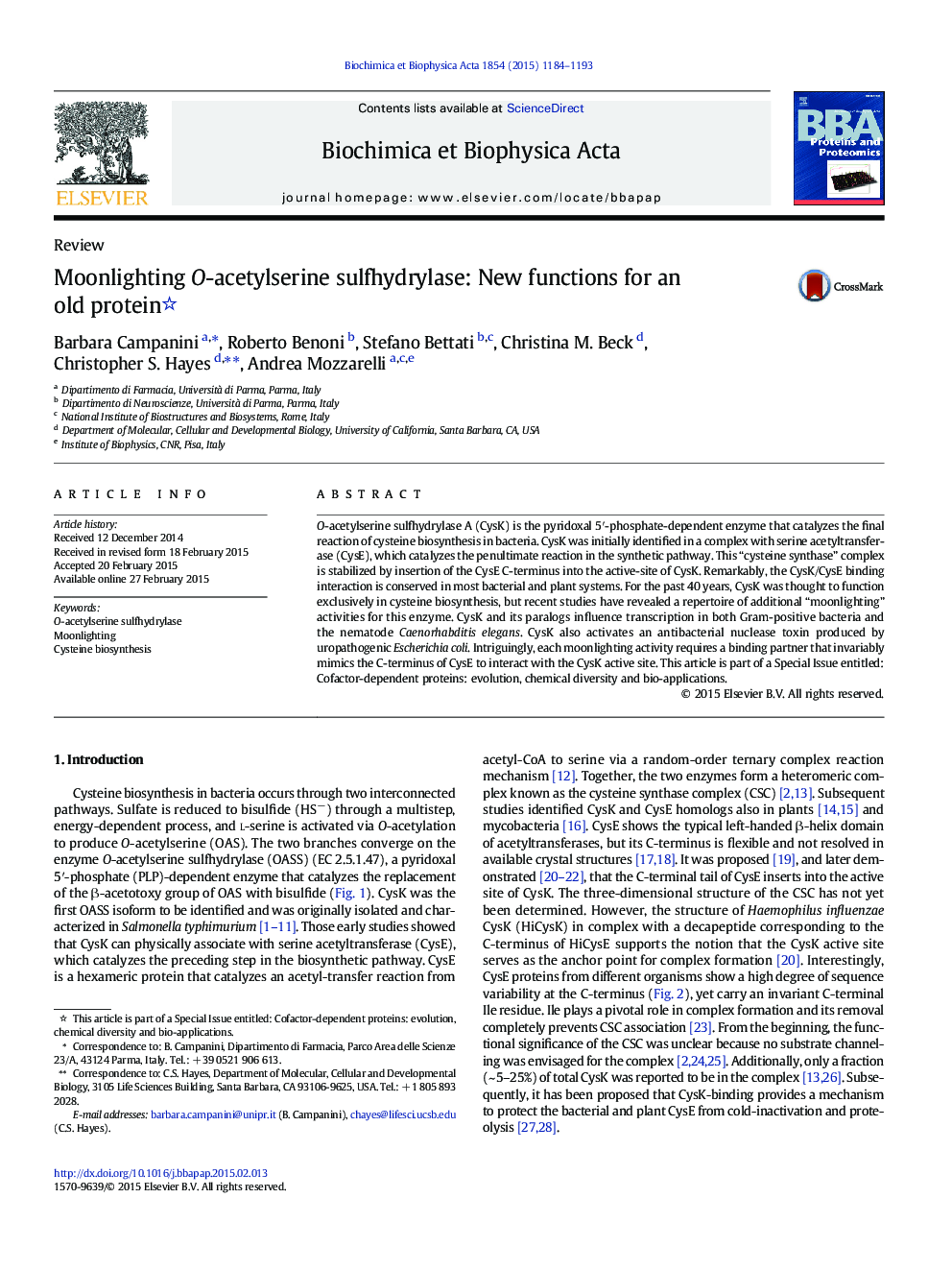| Article ID | Journal | Published Year | Pages | File Type |
|---|---|---|---|---|
| 10537132 | Biochimica et Biophysica Acta (BBA) - Proteins and Proteomics | 2015 | 10 Pages |
Abstract
O-acetylserine sulfhydrylase A (CysK) is the pyridoxal 5â²-phosphate-dependent enzyme that catalyzes the final reaction of cysteine biosynthesis in bacteria. CysK was initially identified in a complex with serine acetyltransferase (CysE), which catalyzes the penultimate reaction in the synthetic pathway. This “cysteine synthase” complex is stabilized by insertion of the CysE C-terminus into the active-site of CysK. Remarkably, the CysK/CysE binding interaction is conserved in most bacterial and plant systems. For the past 40Â years, CysK was thought to function exclusively in cysteine biosynthesis, but recent studies have revealed a repertoire of additional “moonlighting” activities for this enzyme. CysK and its paralogs influence transcription in both Gram-positive bacteria and the nematode Caenorhabditis elegans. CysK also activates an antibacterial nuclease toxin produced by uropathogenic Escherichia coli. Intriguingly, each moonlighting activity requires a binding partner that invariably mimics the C-terminus of CysE to interact with the CysK active site. This article is part of a Special Issue entitled: Cofactor-dependent proteins: evolution, chemical diversity and bio-applications.
Related Topics
Physical Sciences and Engineering
Chemistry
Analytical Chemistry
Authors
Barbara Campanini, Roberto Benoni, Stefano Bettati, Christina M. Beck, Christopher S. Hayes, Andrea Mozzarelli,
